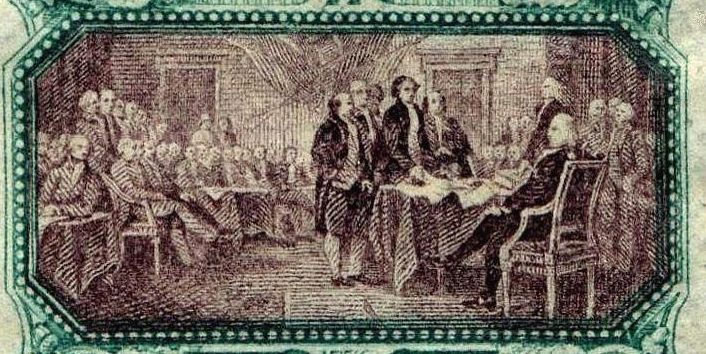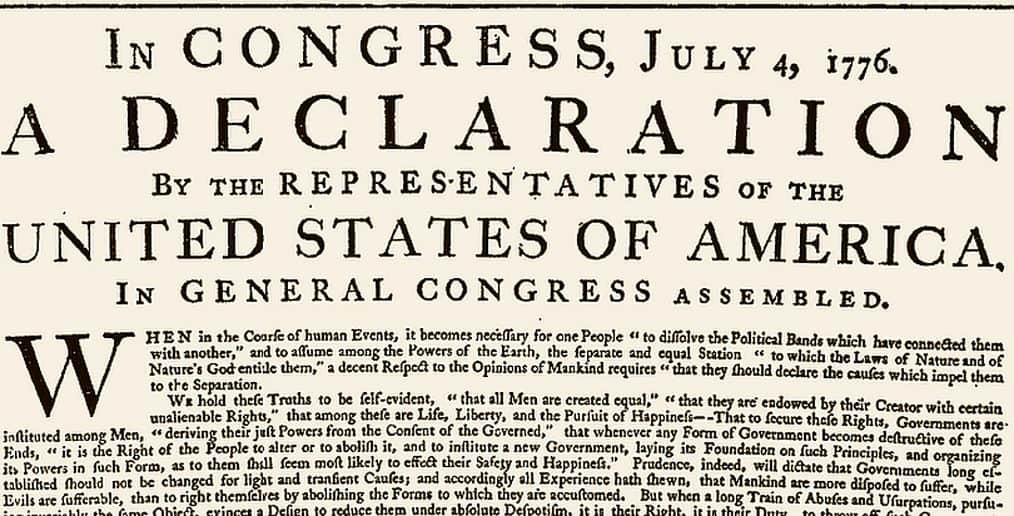Contending for the Recognition of Absolutes, Part 17
Consider the atheist who is outraged at seeing a violent murder on the ten o’clock news. He is very upset and hopes that the murderer will be punished for his wicked actions. But in his view of the world, why should he be angry? In an atheistic, evolutionary universe where people are just animals, murder is no different than a lion killing an antelope. But we don’t punish the lion! If people are just chemical accidents, then why punish one for killing another?…[Moreover, m]any atheists behave morally and expect others to behave morally as well. But absolute morality simply does not comport with atheism.
—Dr. Jason Lisle—
Truth always carries with it confrontation. Truth demands confrontation; loving confrontation nevertheless. If our reflex action is always accommodation regardless of the centrality of the truth involved, there is something wrong.
—Francis Schaeffer—
View summaries of all the articles in this series here.
Part 16 is available here.
The Declaration of Independence begins with this insightful and profound statement:
When in the Course of human events, it becomes necessary for one people to dissolve the political bands which have connected them with another, and to assume among the powers of the earth, the separate and equal station to which the Laws of Nature and of Nature’s God entitle them, a decent respect to the opinions of mankind requires that they should declare the causes which impel them to the separation.
The acknowledgement of “the Laws of Nature and of Nature’s God” is more than significant. The Founders affirmed the existence of a set of standards coming from God and reflected in nature, or the natural world. It’s true that the Declaration does not mention a specific God; the point of the document was not theological. Even more importantly, it was widely understood that this reference was to the God of the Bible. Our early leaders believed strongly in religious liberty. Even so, God’s existence is assumed, not argued—and equally assumed is the idea that laws, including principles that affirm human dignity and a set of standards of right and wrong, are an inherent part of the natural order of things. These standards originate from outside—and not from within—humanity and human reason.
Truth comes from outside human beings, not from within.
Writing for the Heritage Foundation, Mark David Hall addresses the question “Did America Have a Christian Founding?” He essentially answers by saying, “It depends on what is meant by ‘a Christian founding,’” but affirms the answer is yes if the phrase means biblical principles and ideas strongly influenced America’s architects. “I believe,” Hall writes, “that an excellent case can be made that Christianity had a profound influence on the Founders.” He cites five specific examples, including these.
- Their faith taught them that humans were sinful.…
- They firmly believed that God ordained moral standards, that legislation should be made in accordance with these standards, and that moral laws took precedence over human laws.
The idea of absolute truth, therefore, was an important principle informing and guiding America’s Founders as they led the Colonies to separate from Great Britain and as they drafted the US Constitution. Although it didn’t originate in the United States, the affirmation of absolute truth can rightly be called an American ideal.
Last week we highlighted five specific characteristics of Alliance Defending Freedom’s clients, and we used Blaine Adamson, Jack Phillips, and Barronelle Stutzman as representative examples. Against the backdrop of America’s founding, I want to underscore a point we dare not miss from our previous discussion. Here I am elaborating on last week’s fifth point, the importance of affirming and living by the right principles.
Blaine Adamson, Darold and Barronelle Stutzman, Kelvin Cochran, Evelyn and Donald Knapp, and Jack Phillips
Adamson, Phillips, Stutzman, and others are upholding principles that originated outside themselves. They are not willing to risk everything to have the right to follow their own feelings on a matter. If an individual is going to risk everything, he or she ought to risk it for something more certain than that! ADF clients are upholding the truth—absolute truth that reflects universal standards of right and wrong. These arise from God and His character.
God is the Architect of all that is, including morality and ethics.
Ancient of Days by William Blake (1757-1827)1
Yet their convictions run even deeper than that. Their beliefs are rooted, not just in ideals or principles, but in God Himself and their sense of accountability to Him. Last week’s three-minute audio clip contained clear evidence of this from the perspective of each client. This one-minute excerpt presents that core evidence. You’ll hear Adamson first, Phillips second, and Stutzman third.
To be clear, an individual doesn’t have to believe in God to believe in moral principles or absolute truth. However, the existence of absolutes is best explained by the existence of God, as apologist J. Warner Wallace has pointed out.
Confronted with the hostility, pressure, and expressions of hate that ADF clients surely must experience, these courageous men and women are not following their feelings. They’re not following their opinions either, although their opinions align with what they know to be true.
Alliance Defending Freedom’s clients aren’t following their feelings or opinions. Rather, they’re putting everything on the line because of what they know to be true and because they are compelled to obey the God who is the source of all truth.
They are putting everything on the line because of what they know to be true and because they are compelled to obey the God who is the source of all truth. It’s all the more reason to follow their examples. As Barrnelle Stutzman affirms, “you can’t be lukewarm” in your commitment to Christ.
What have you risked lately because you’re a Christian?
Part 18 is available here.
Copyright © 2017 by B. Nathaniel Sullivan. All rights reserved.
1Use of Blake’s work is not to be construed as an endorsement of his religious views. Ancient of Days does, however, symbolically highlight a number of divine traits that are consistent with the authority and creative power of the God of orthodox Christianity, which we do affirm.
top image: portion of an 1869 US postage stamp commemorating the presentation of the Declaration of Independence





Be First to Comment